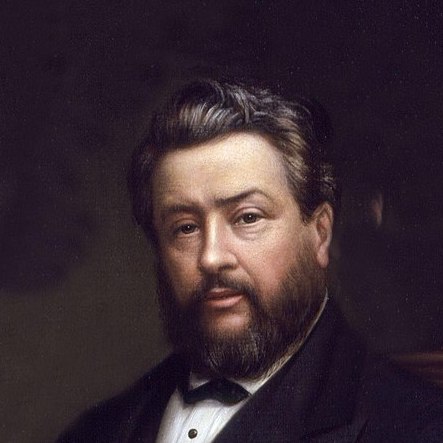
Suffering from the Divine Hand (Spurgeon)
“Your wrath lies heavy upon me, and you overwhelm me with all your waves. Selah.” (Psalm 88:7)
“…Let us remark that saints do well to trace all their trials to their God. Heman did so in the text: “Thy wrath lieth hard upon me, thou hast afflicted me with all thy waves.” He traces all his adversity to the Lord his God. It is God’s wrath, they are God’s waves that afflict him, and God makes them afflict him. Child of God, never forget this; all that thou art suffering of any sort, or kind, comes to thee from the divine hand.
“Truly, thou sayest, “my affliction arises from wicked men,” yet remember that there is a predestination which, without soiling the fingers of the Infinitely Holy, nevertheless rules the motions of evil men as well as of holy angels. It were a dreary thing for us if there were no appointments of God’s providence which concerned the ungodly; then the great mass of mankind would be entirely left to chance, and the godly might be crushed by them without hope. The Lord, without interfering with the freedom of their wills, rules and overrules, so that the ungodly are as a rod in his hand, with which he wisely scourges his children.
“Perhaps you will say that your trials have arisen not from the sins of others, but from your own sin. Even then I would have you penitently trace them still to God. What though the trouble spring out of the sin, yet it is God that hath appointed the sorrow to follow the transgression, to act as a remedial agency for your spirit.
“Look not at the second cause, or, looking at it with deep regret, turn your eye chiefly to your heavenly Father, and “hear ye the rod and who hath appointed it.” The Lord sends upon us the evil as well as the good of this mortal life; his is the sun that cheers and the frost that chills; his the deep calm and his the fierce tornado.
“To dwell on second causes is frequently frivolous, a sort of solemn trifling. Men say of each affliction, “It might have been prevented if so and so had occurred.” Perhaps if another physician had been called in, the dear child’s life had still been spared; possibly if I had moved in such a direction in business I might not have been a loser. Who is to judge of what might have been? In endless conjectures we are lost, and, cruel to ourselves, we gather material for unnecessary griefs. Matters happened not so; then why conjecture what would have been had things been different? It is folly. You did your best, and it did not answer: why rebel? To fix the eye upon the second cause will irritate the mind.
“We grow indignant with the more immediate agent of our grief, and so fail to submit ourselves to God. If you strike a dog he will snap at the staff which hurts him, as if it were to blame. How doggish we sometimes are, when God is smiting us we are snarling at his rod. Brother, forgive the man who injured thee, — his was the sin, forgive it, as thou hopest to be forgiven; but thine is the chastisement, and it comes from God, therefore endure it and ask grace to profit by it.
“The more we get away from intermediate agents the better, for when we reach to God grace will make submission easy. When we know “it is the Lord,” we readily cry, “let him do what seemeth him good.” As long as I trace my pain to accident, my bereavement to mistake, my loss to another’s wrong, my discomfort to an enemy, and so on, I am of the earth earthy, and shall break my teeth with gravel stones; but when I rise to my God and see his hand at work, I grow calm, I have not a word of repining,
“I open not my mouth because thou didst it.” David preferred to fall into the hands of God, and every believer knows that he feels safest and happiest when he recognizes that he is even yet in the divine hands. Cavilling with man is poor work, but pleading with God brings help and comfort. “Cast thy burden on the Lord” is a precept which it will be easy to practice when you see that the burden came originally from God.”

Charles Spurgeon (1834-1892) was pastor of New Park Street Chapel in London. He was a preacher, prolific author, and philanthropist. Spurgeon’s sermons have been continuously republished and consist of 63 volumes. He has been hailed as the ‘Prince of Preachers’ and ‘The Last of the Puritans.’
In place of comments, I would love to hear from you personally. Please reach out to me via the Contact Page to share your thoughts and perspectives on this post!
Enjoying this content? Subscribe to receive it directly in your email, once a week.





